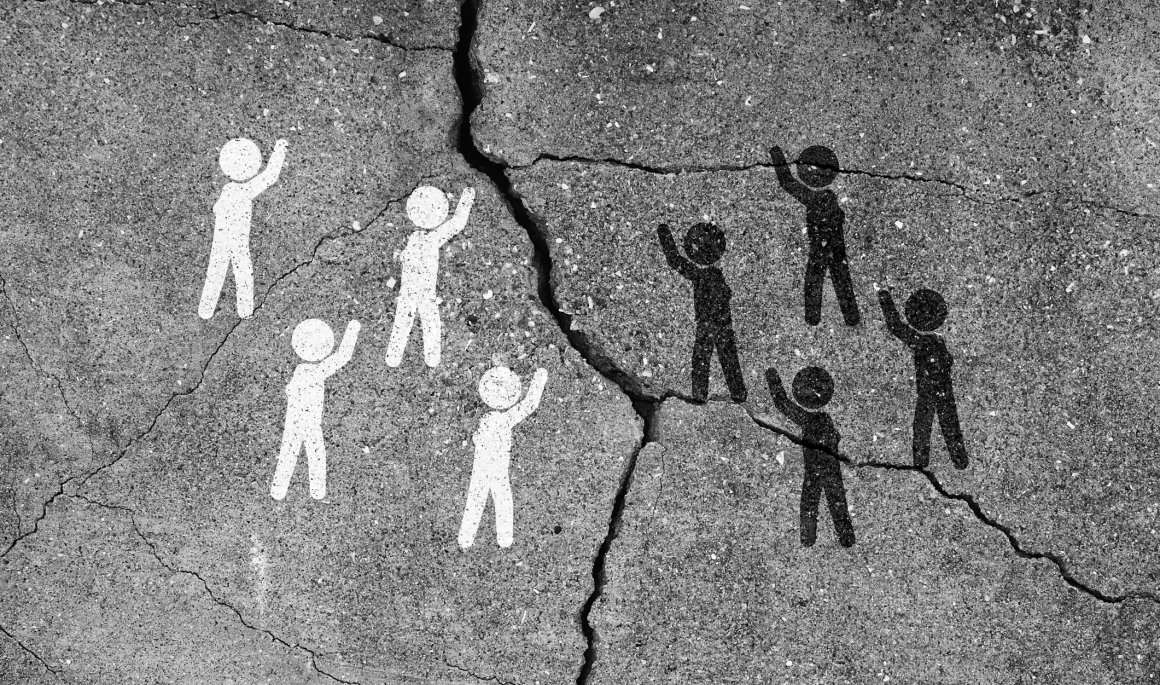- Norwich Blogs
- Blogs
- Generational Shifts: Understanding the Dynamics of U.S. Support in the Israeli-Palestinian Conflict
Generational Shifts: Understanding the Dynamics of U.S. Support in the Israeli-Palestinian Conflict
By Diane Zorri
Disclaimer: These opinion pieces represent the authors’ personal views, and do not necessarily reflect the official policies or positions of Norwich University or PAWC.

The United States wields significant influence in shaping discourses on conflict, particularly through its promotion of freedom of speech, dominance in English-language media, and extensive platforms for expression. Social media also plays an important role in how the narratives are shaped and understood by the masses. The surge social media platforms like Instagram and TikTok have allowed observers to cover the events in real time and broadcast the atrocities of conflicts to a wide audience. This interconnected media landscape has profound implications for how conflicts, such as the aftermath of the Hamas attack on Israeli kibbutzim in October 2023, are portrayed and understood globally.
Background to Conflict
The Israeli-Palestinian conflict has experienced both periods of tension and relative calm throughout its history. The significant influx of Jewish immigrants to the Levant in the first half of the 20th century brought about substantial demographic changes in the region. Since Israel's declaration of statehood in 1948, global reactions have been diverse. Some countries, especially those in the Middle East, opposed the establishment of the Jewish state and engaged in armed conflicts against it.
Throughout the latter half of the 20th century and into the 21st, the United States has actively pursued peace negotiations between Israel and its Arab neighbors. However, within Israel's jurisdiction there remain two predominantly Arab and semi-autonomous territories: the West Bank and the Gaza Strip. Yet, these territories are not fully sovereign nor are they contiguous. They are under the governance of distinct authorities with markedly divergent perspectives on governance. In the West Bank, the Palestinian Authority, led by the Fatah political faction, serves as the de facto government for the Palestinian people and maintains the rule of law. Meanwhile, in the Gaza Strip, the powerful political-military Hamas organization has claimed power since 2006. The dynamics and governance structures within these territories contribute to the ongoing complexities of the Israeli-Palestinian conflict.
Wars of Public Opinion
Following Hamas’ October attack, the Israeli government took decisive action, mobilizing over 300,000 reservists and making a significant decision to declare war. This marked a profound development, as Israel had not officially declared war since 1973. What has caught the attention of some observers, however, is the surge in widespread popular support for the Palestinian people on American university campuses and heightened awareness of the situation in the Gaza Strip. This sentiment has taken some by surprise, indicating a shift in public opinion and consciousness regarding the Palestinian cause.
Within the United States, the demographic makeup of the American population may be having a role in shaping the discourse around the conflict. With approximately 7.6 million Jewish Americans, the Jewish caucus holds a significant stake in the ongoing events. Yet, over the past 50 years, there has been a noticeable rise in Arab Americans, constituting a population of around 3 million. The religion of Islam is also rapidly emerging in North America, and within the United States the Muslim American community has grown to 3.45 million, making it the third-largest religion in the country after Christianity and Judaism.
Inside this diverse landscape, many Palestinian Americans have emerged as influential voices in shaping the discourse on the conflict. Notable figures such as U.S. Representative Rashida Tlaib and supermodel Bella Hadid have actively voiced support for the Palestinian people. Their prominence reflects the diversity of perspectives within the American narrative, contributing to the ongoing discourse surrounding the Israeli-Palestinian conflict. In March 2023, a Gallup poll highlighted a pivotal change, showing a distinct divide along Republican and Democrat party lines. Remarkably, American Democrats, for the first time in history, displayed a notable shift in sentiment, expressing considerably greater sympathy toward Palestinians than Israelis. Perhaps even more ironic is that nearly 70% of Jewish Americans identify as Democrats.
The gap in support could also be reflective of a generational divide with older Americans generally showing more support for Israel, and a growing body of younger Americans voicing support for Palestine. Traditionally, Americans have rallied behind the underdog, and the older generations may vividly recall a time when Israel emerged as a state in the aftermath of the Holocaust, navigating conventional conflicts with Arab neighbors, and facing terrorist attacks at home and abroad. On the other hand, today's university students are accustomed to the established existence of the Israeli state and may be more inclined to view the Palestinians as victims of oppression. Yet, this is not the first time there has been a perceptible shift in support; in the wake of the 1973 conflict, many scholars suggested media coverage of the conflict was biased and strongly favored either Arabs or Israelis.
The prevailing challenge in contemporary narratives is their inclination to polarize all Israelis against all Palestinians, or all Jews against all Arabs, overlooking shared challenges and shared enemies, like food security, climate change, opioid addiction, human trafficking, and smuggling networks. These simplistic portrayals fall short in encapsulating the nuanced and profoundly intricate history of the conflict. On both sides, there exist individuals and entities fervently pursuing peace alongside those culpable of reprehensible crimes against humanity. The diversity inherent in each community should challenge the binary expectation of aligning exclusively with either Palestine or Israel. As Americans, it should be entirely plausible to advocate for the well-being and rights of both.
Dr. Diane Zorri is an Associate Professor of Security Studies at the National Defense College of the United Arab Emirates.



